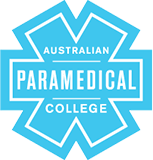
How do I become a critical care paramedic?
Bachelor of Paramedicine (Honours)
- There are no mandated entry requirements.


Diploma of Emergency Health Care
- There are no mandated entry requirements.
 Australian Paramedical College
Australian Paramedical College
Bachelor of Paramedic Science
- There are no mandated entry requirements.


Bachelor of Paramedicine
- There are no mandated entry requirements.








Graduate Diploma of Paramedicine
- There are no mandated entry requirements.


Bachelor of Paramedic Practice (Honours)
- There are no mandated entry requirements.
 La Trobe University
La Trobe University
Related occupations
Emergency Medical Technician
An Emergency Medical Technician (EMT) provides urgent care, assesses patients, and stabilises them before transport to medical facilities.
Aviation Medic
An Aviation Medic provides emergency medical care during air travel, stabilising patients in remote areas and responding to various situations.
Patient Transport Officer
A Patient Transport Officer safely transfers non-emergency patients between locations, requiring communication skills, physical fitness, and procedural accuracy.
Industrial Medic
An Industrial Medic delivers emergency healthcare at remote work sites, responding to accidents, managing injuries, and coordinating patient transport.
Australian Defence Force Medic
An Australian Defence Force Medic provides medical care in emergencies, managing multiple casualties while staying calm under pressure.
Emergency Medical Dispatcher
An Emergency Medical Dispatcher answers emergency calls, prioritises responses, and provides advice while paramedics are en route.
Emergency Services Officer (ESO)
An Emergency Services Officer (ESO) ensures site safety during emergencies, assesses situations, and arranges medical treatment for casualties.
Volunteer Ambulance Driver
A Volunteer Ambulance Driver transports patients in non-emergencies, requiring flexibility, strong communication skills, and adherence to procedures.
Ambulance Service Paramedic
An Ambulance Service Paramedic provides emergency care, responds to 000 calls, treats patients on-site, and must stay calm under pressure with strong decision-making skills.
Paramedic
Paramedics respond to emergencies, providing on-site treatment and transport, requiring quick thinking, fitness, and resilience to trauma.
Intensive Care Paramedic
Intensive Care Paramedics are expert responders who manage severe emergencies, performing advanced procedures and supervising junior staff.
Emergency Response Specialist
Emergency Response Specialists manage critical incidents, ensuring community safety through emergency plans, risk assessments, and training.
Flight Paramedic
A Flight Paramedic provides advanced medical care during air transport, administering treatments and coordinating with teams to ensure patient safety.
Ambulance Transport Attendant
An Ambulance Transport Attendant transports patients safely, ensuring comfort, monitoring their condition, and communicating effectively with healthcare teams.4o mini
Common questions
How much do Critical Care Paramedics earn?
Australian Critical Care Paramedics earn approximately $1,800 per week ($93,600 annually). These are median figures for full-time employees and should be considered a guide only.
What are the job opportunities for Critical Care Paramedics?
There are approximately 27,000 ambulance officers and paramedics working in Australia right now, some of these are Critical Care Paramedics. They are employed by the health authorities in each state or territory and are regulated by the Australian Critical Care Paramedicine Board. This is a growth occupation.
How do I become a Critical Care Paramedic?
Critical Care Paramedics are qualified paramedics with several years of experience in the field as well as post-graduate studies in critical care. As a minimum, you’ll need a Bachelor of Science (Paramedical Science) or Bachelor of Paramedicine, plus a Graduate Diploma in Paramedic Science (Critical Care Practice). In Australia, paramedicine is a regulated profession under the National Registration and Accreditation Scheme (NRAS), so to get a job, you will need formal qualifications as well as professional accreditation with the Australian Health Practitioner Regulation Agency (AHPRA).
Source: Australian Government Labour Market Insights 2023
Further reading


Choosing a security licence course in Australia: A step-by-step guide for jobseekers
10th November 2023)

